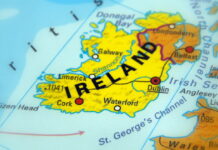Kansspelautoriteit, the Dutch gaming authority, has begun a consultation period for gambling industry stakeholders in the Netherlands to provide their opinions on its updated Responsible Gaming Policy rules.
Opening on December 21 and closing on February 1, the updated responsible gaming policy introduces additional context on the duty of care and changes to advertising rules.
The policy is a follow-up to a survey the KSA conducted with ten providers on the interpretation and implementation of duty of care, which discovered that some providers don’t intervene promptly when excessive play or possible addiction is shown.
When the study was published in September, the gaming authority noted that amendments would be made to the responsible gaming policy to “further clarify a number of open standards in the legislation, so that providers can better fulfil their duty of care”.
The updated rules state that providers “must be able to recognise a signal of excessive gambling within one hour” as the research found that many don’t monitor such activity in real-time and they sometimes detect signals too late, resulting in players suffering large losses in a short timeframe.
If more than €700 is net deposited by a player during a calendar month (adults aged 18-24: €300 net deposit), providers must contact the player and ask for proof of income before the player is allowed to deposit any more funds. Funds in the account before the request is made can still be played with.
The policy update also provides clarification on advertising standards, including the ban on using role models and the ban on untargeted advertising, to further protect vulnerable groups such as minors and young adults.
Once the consultation period has concluded on February 1, the KSA aims to publish the new policy rules in the Government Gazette on April 1.
Last September, outgoing KSA Chair René Jansen called on operators in the Dutch market to take a greater duty of care when it comes to protecting players from gambling harm and problem gambling.











